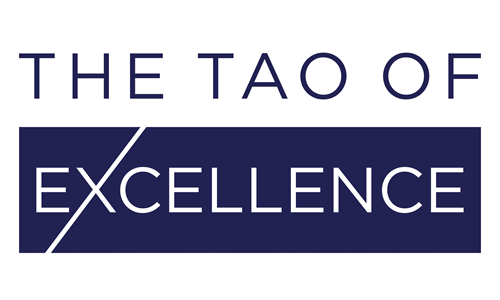Today, our focus on data has never been so important, and predictably this will only continue to climb. Over the past few years alone, “digital healthcare has grown exponentially” and “the amount of data collected by the industry has increased by almost 50% every year.”[1] With advances in technology—its wide use and global accessibility—data collection and its analysis has fast become one of the world’s most valuable assets, mapping the world around us in real-time, informing our present, and ultimately, deciding our future.
Previously, the Medical Device Directive (MDD) guidelines in Europe encouraged companies to collect clinical data on products—yet they were just that; guidelines. The EU’s new Medical Devices Regulation 2017/745 (MDR) however, now enforces clinical evidence as a requirement to obtain a CE mark.
It is through such changes that the MDR is redefining the medical devices industry in Europe, as well as significantly impacting behaviours in the market globally. From classifications, definitions and concepts through to procedural requirements, the MDR is driving change in the industry to improve patient safety and increase market transparency.
Now, under the MDR and in order to receive or renew a CE mark, manufacturers need to produce a detailed level of clinical data on the development and safety of every device. This requirement applies not only to new devices, but also to devices that are already certified. The requirement that all devices pass a conformity assessment for the MDR additionally enacts a ‘no grandfathering’ clause that will particularly affect older devices—where manufactures may have little to no clinical data as a device could previously be certified by its relation to a pre-existing, certified product.
The importance of the Clinical Evaluation Report (CER)—submitted during the regulatory assessment with a Notified Body (NB)—has been emphasised in the MDR, which has strengthened the requirements around clinical data by specifying that it must be “scientifically valid, reliable and robust” whilst also ensuring that the “rights, safety, dignity and well-being of the subjects participating in a clinical investigation are protected and prevail over all other interests.”[2]
NBs will therefore require a more in-depth level and higher quality of clinical evidence from manufacturers, with some asking for more clinical data than others. On top of this request for clinical evidence there will be an additional review for certain types of devices. This extra level of scrutiny will add an additional layer of control around certain medical devices.
Given that clinical data was previously just a guideline rather than a strictly followed prerequisite for certification—as well as the costly and time-consuming nature of data collection—many manufactures will find that the data they do have is unlikely to meet the higher standard for the CER. The MDR will also require clinical data from re-classified devices, which previously did not need data. Together, the time, knowledge and money required to collect and produce this data will put manufactures under a significant amount of pressure as they carry out their regulatory responsibilities within a very limited timeframe to ensure they can obtain or maintain their access to the EU market.
Last week, Europe’s medical device trade group voiced their concern that it is not feasible to implement the MDR by the deadline of May 2020.[3] To date, of the NBs that can assess and certify products for the EU market, just 1 of 58 companies has been designated for certification, and that organisation is based in the UK (a country that is in the process exiting the EU).
With the time it is taking to designate NBs—which limits their capacity to certify products by the MDR deadline and potentially leaves manufactures unable to access the EU market—EU medtech companies may take their business elsewhere as a first choice. “European medtech startups and small and medium-sized companies, which represent 95% of the E.U. medical device industry, are already turning to the United States, China and other regions to develop and launch their products.”[4]
However, the manufacturers that do have the correct clinical data will find that they can not only keep their products on the European market, but also gain the advantage of a competitive edge—precisely because clinical studies can be expensive and take a considerable length of time to complete. As with the FDA’s current device database, Eudamed will enable these companies to track and analyse the performance of devices on the market, allowing them to mine for information through comparative data analytics and reveal the industry patterns and opportunities in the market that they can then act on.
Clinical data is therefore set to become significantly more transparent in Europe, which can provide organisations with an interesting and useful source of information on how their competitors are reacting to the MDR. Such data can then be used as an invaluable resource for those looking to harness the power of data for their own development. However, this data collection is a complex process that requires specialist expertise and a novel approach in order to ensure that its findings are accurate, clear and effective.
Novartis is an example of a company that has embraced such data collection for the benefit of patients. Since its creation of the Global Drug Development (GDD) in 2015, Novartis has been building an advanced analytics platform called Nerve Live to hold and leverage its data in a single space. This platform enhances its ability to analyse data and use its research to develop new therapies. As Dr. Luca Finelli, who leads the Predictive Analytics & Design group within GDD, describes, “It was not an easy journey”—“our team had to rethink how we integrate, analyze and use our data.” Yet, as Dr. Finelli explains, “If we are able to bring our data into one place and tap into the latest computing technologies, we can generate new insights that in the past were difficult to obtain because our data was locked in silos.”[5]
The Tao of Excellence has a team of specialist experts in data collection, analysis and strategy that can assess the current state of your company’s clinical data. Our specialists can also analyse our client’s competitors, produce strategic market reports and assist our clients with their plans to develop and harness their true potential. Contact us today for your data consultation or visit our website to learn more about how we can assist your organization.
 Jasminka Roth
Jasminka Roth
Founder and Director of The Tao of Excellence
Phone
+41 52 685 51 65
Email
[email protected]
Did you like this article? Follow us on LinkedIn and Twitter!
[1] Novartis Press Release, 12 July 2018: https://sciencebusiness.net/network-news/novartis-drug-development-gets-big-data-analytics-boost
[2] Regulation (Eu) 2017/745 of the European Parliament and of the Council, 5 April 2017: https://eur-lex.europa.eu/legal-content/EN/TXT/?uri=CELEX:32017R0745
[3] Nancy Crotti, Medical Design & Outsourcing: April 18, 2019: https://www.medicaldesignandoutsourcing.com/medtech-europe-warns-of-device-flight-to-u-s-and-china-if-mdr-not-ready/
[4] Ibid.
[5] Novartis Press Release, 12 July 2018: https://sciencebusiness.net/network-news/novartis-drug-development-gets-big-data-analytics-boost

